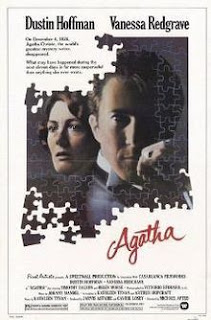 |
| Norman Helms as Felix Blain |
That is, one feels that the director and script-writer wanted so badly to be honest with the known material, they presented the main character--Matthew Honeycutt, aka James Brighton--exactly how he appeared to Canadians within the medical and gay communities when he claimed to be an amnesiac who knew only that he was gay.
In fact, the movie would have worked better if the director had stayed with Felix Blain, the roommate who takes Matthew (James) in. Blain trusts, distrusts, feels alarmed by, and wishes to help Matthew (James). Helms's performance is convincing and fascinating and makes a great tale all by itself.
A story of compassion marred by betrayal is a viable (if sad) story. As one of the characters says in the movie, "We always knew it could end badly." Should that stop a person from reaching out? (See the excellent episode "Good Samaritan" from Frasier for the answer to that question.) Consider Alicia Esteve Head from 9/11--it's a fairly fascinating tale.
 |
| Dukic as Honeycutt/Brighton |
However, again, the film might have been saved by staying with the Samaritans who helped "James." Why do they still feel justified? Or not? Do they still believe him? What is the police perspective?
Instead, the movie shifts away from the revelation that Matthew/James was likely a low-level conman to trying to explain (excuse) Honeycutt by giving him homophobic family members and a tragic back-story. He may have joined in a mob attack on his male lover!
 |
| If you want to watch a GOOD film |
| of a potentially murderous person |
| in a fugue state, watch Agatha. |
My response wasn't, How awful! Of course, he had amnesia! Of course, he needs to move on!
My reaction was, That guy uses everybody, doesn't he?
Because, ya know, actually good people don't excuse killing someone by saying how "beautifully tragic" it is. I mean, really, they don't.
I should mention that there's no evidence whatsoever (that I could find in 1999-2000 newspapers) that Matthew Honeycutt (James Brighton) wasn't an ordinary fraudster or, even, a deeply troubled young man in a fugue state who stole money, culminating in the theft of a family car. (Not a murderer.)
So not only does the film produce one of the creepiest self-excusing characters on record, it isn't entirely fair to the real guy. Or the real family--since newspaper reports indicate that they were pretty level-headed people, understandably confused by their very confusing son/brother.
And the true material would have made for a more interesting ending (Is he trustworthy? Isn't he? Is he just a guy who messes with people? Is he someone who is truly going through an identity crisis?). It also would have matched the beginning of the film.
Instead: unbelievable melodrama with an entirely unsympathetic hero. But not a waste since I learned about a case from 1999!